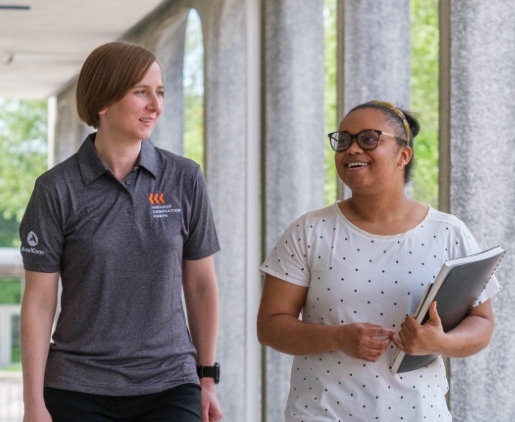Looking Ahead

In the midst of all of 2021’s obstacles, countless bright spots gave us hope.
Seeing more than 450 partners, leaders, and champions in college access at our 10th annual conference.
Connecting with 150 advocates from all corners of the state to amplify our rallying cry at College Access Advocacy Week.
Initiating new efforts to address systemic inequities, from establishing the MI ECHO Scholarship to establishing partnerships with all three Michigan tribal colleges.
With this hope at the helm, we march confidently and purposefully into the future.
With this confidence comes awareness; we recognize and acknowledge the challenges before us. Declining higher education enrollment rates continue to make front-page headlines; FAFSA completion rates are down; and much of the general public’s outlook on the role and importance of college has shifted significantly. These are new problems, and they will require new solutions.
Now is not the time to put on blinders and hold ourselves to the standards of years past — now is the time to return forward.
We continue our work, but with a new strategy and perspective. We will incorporate research and intent to address the real needs of today’s students. Not what we, educators, or policymakers perceive to be students’ needs, but what students actually require to adapt to this upended landscape.
Throughout the coming years, MCAN will continue many of its existing efforts, while investing in new focus areas. We will address the unique needs of new audiences, expanding our scope to include workforce engagement and adult learners. We will emphasize college completion as a new strategic priority. We will build on the capacity of communities through our ongoing support of Local College Access Networks, investing in high schools, and communities. We will convene critical leaders and organizations for advocacy in the college access and success fields. We will partner with like-minded, mission-aligned organizations, in order to demonstrate Michigan’s progress on both a statewide and national scale. And, of course, we will double down on Sixty by 30: our goal, in alignment with the State of Michigan, to increase the percentage of Michigan residents with postsecondary certificates and degrees to 60 percent by the year 2030.
Now is the time to pull out all the stops. It is time to engage not only partners, policymakers, and students, but all Michiganders. We hope you’ll stand beside us as we return forward together.